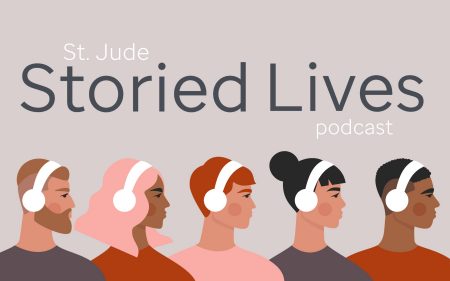
St. Jude launches information hub on kids with cancer and COVID-19
Digital registry connects doctors and researchers around the world to share knowledge as they deal not just with childhood cancer but the impact of the pandemic.

April 16, 2020 • 3 min

Recognizing the twofold threat the COVID-19 pandemic presents to kids with cancer, St. Jude Children’s Research Hospital helped develop an online network enabling doctors around the world to track pediatric cancer patients who have been infected with the virus and share information on how to treat them.
The Global COVID-19 Observatory and Resource Center for Childhood Cancer, established in partnership between St. Jude and the International Society of Paediactric Oncology (SIOP), has three components: a registry for gathering data on infected cancer patients worldwide, educational resources and a community space for news, the sharing of experiences and information and discussion.
In discussing the need for the observatory, organizers said the pandemic poses a dual threat to childhood cancer patients. First, chemotherapy and other treatments can ravage kids’ immune systems, leaving them especially vulnerable to infection. Secondly, measures to contain and minimize the spread of the virus can disrupt healthcare systems and limit access to care and the very therapies needed to overcome cancer.
“We are facing a global challenge like never before, and we need to articulate a response that brings together multiple organizations around the world,” said Carlos Rodriguez-Galindo, M.D., director of St. Jude Global.
“Not only is this virus placing the lives of children with cancer at risk, but it is also disrupting the entire continuum of care. Access to care around the world is limited, and our international partners, like us, are focusing substantial hospital resources on fighting COVID-19.”
The registry will be based on a reporting system using a secure, cloud-based platform to collect and store real-time data and analytics on infected pediatric cancer patients from institutions around the world. The patients will be “de-identified,” or made anonymous, to comply with the Health Insurance Portability and Accountability Act.
The success of the registry, organizers said, ultimately will depend on robust participation from health care providers globally. Professionals in the pediatric hematology and oncology community not only will have access to the data, but will receive regularly updated summary information about reported cases broken down by country and by method of treatment.
“We want to be able to capture all the cases of children with cancer affected by COVID-19 and let that inform our decision-making,” said Professor Kathy Pritchard-Jones, SIOP president. “The registry is a high-level, first-pass effort to get the information quickly, because what we find out now can guide future interventions. With the data generated by the registry, we will be able to create an observatory to monitor the impact of COVID-19 on childhood cancer care and control.”
The establishment of the registry and resource center comes two years after St. Jude launched a $100 million initiative to improve and expand pediatric cancer care globally, especially in low- and medium-income countries where survival rates lag far behind those in affluent nations.
“Through St. Jude Global, we have started a new effort to coordinate knowledge-sharing for treating pediatric cancer patients who have COVID-19,” said St. Jude President and CEO James R. Downing, M.D. “Development of COVID-19 is particularly worrisome because these patients have suppressed immune systems from cancer treatments. Our physicians organized this platform for collecting data, sharing clinical experiences, developing online seminars and workshops, and outlining best practices for treating children with cancer and COVID-19.”
In addition to the registry, the observatory offers educational content for clinicians and forums on which they can discuss COVID-19 insights and treatments.
“There are lessons learned from countries where the pandemic peaked ahead of us,” Rodriguez-Galindo said. “We’ve already held educational sessions with physicians and infectious diseases experts from Singapore, Japan, China and Russia. These meetings have been translated to Spanish, French and Arabic. These opportunities to meet with global health care leaders will continue to be a catalyst for the registry.”








